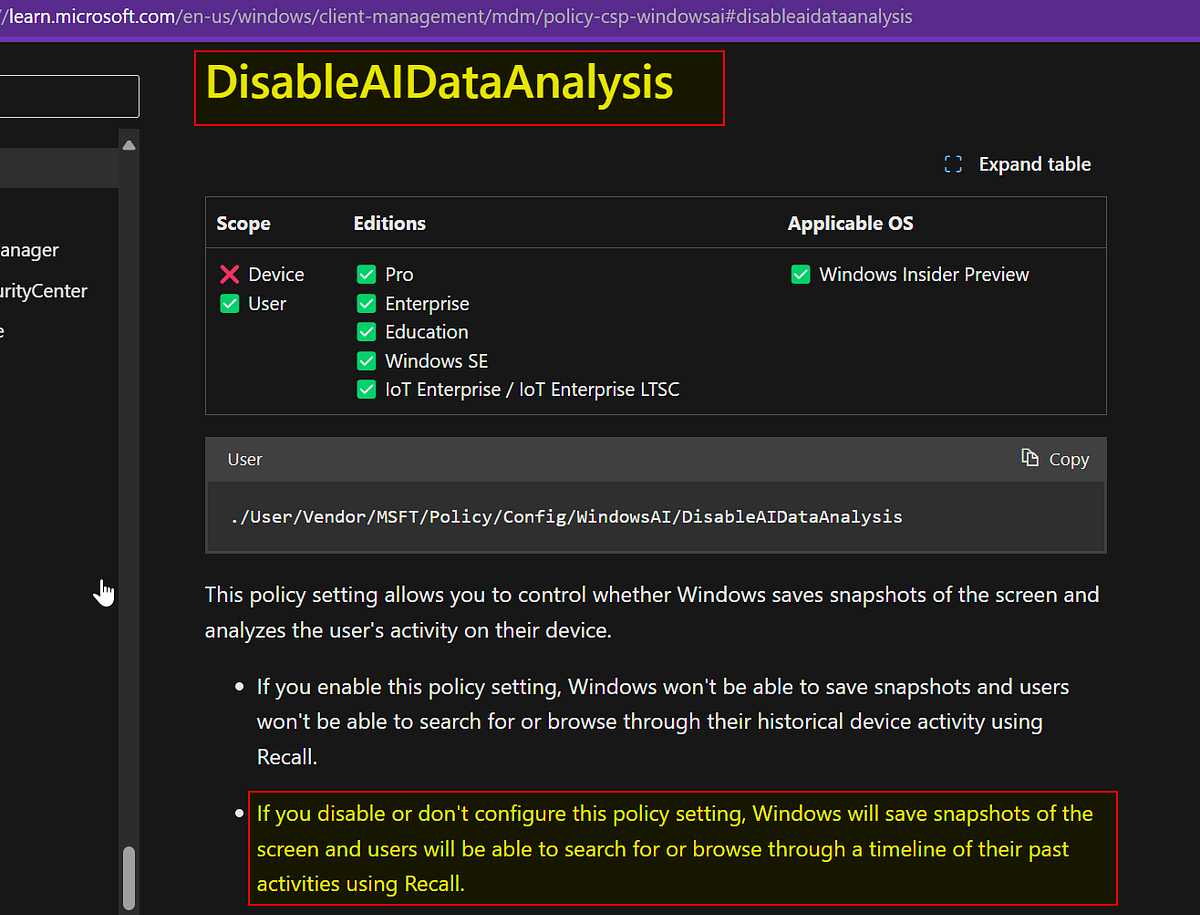Q. Is this really as harmful as you think?
A. Go to your parents house, your grandparents house etc and look at their Windows PC, look at the installed software in the past year, and try to use the device. Run some antivirus scans. There’s no way this implementation doesn’t end in tears — there’s a reason there’s a trillion dollar security industry, and that most problems revolve around malware and endpoints.



Theoretically, Microsoft could protect against most attacks. Apple has done it by making it increasingly impossible to touch kernel level stuff without an MDM. Every release they lock up more of the system. It means they are drifting toward iOS on their Macs, where the user doesn’t own their device, but it is an effective blocker to stuff like this, baring zero day kernel issues.
I think that is where Microsoft is headed, but they also aren’t able to let go of backward compatibility, so they really aren’t getting any closer to a system that is secured enough to handle such sensitive data.
Most compromises live in user space. Locking down the kernel is great and all but “most attacks” are running as the logged in user doing operations that user is permitted to do.
I am shocked there is even a single downvote on this comment. parent is 110% right. a kernel level compromise in the vast majority of exfiltration events its just needless (but nifty) icecream on top of the pain pie being served to the user.
Even on userland stuff Apple controls tightly. If they want to require a user to manually click, they will get that. If they want it to be a physical mouse and keyboard doing it, they will get that too. They own the device, and have complete control, not the user or “owner”.